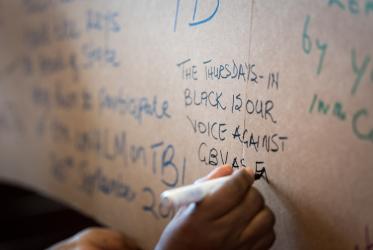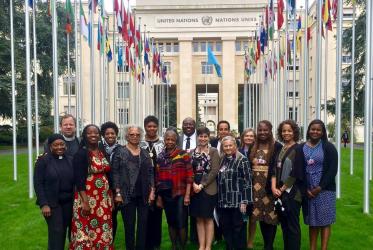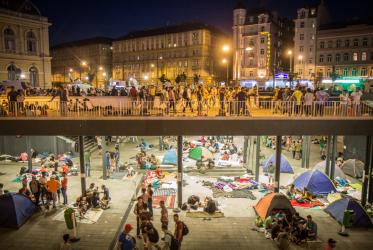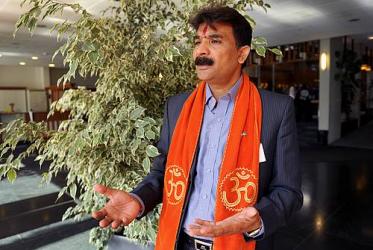Displaying 1 - 20 of 20
Pan-African Women of Faith and the Vision of Christian Unity, Mission, and Justice
01 November 2023
WCC governing body builds momentum toward WCC 11th Assembly
15 February 2022
Churches in southern Africa stand against violence, xenophobia
10 October 2019
WCC Executive Committee envisions future for one ecumenical movement
08 November 2018
Churches are vital to renewed focus on gender violence, says WCC
07 November 2018
WCC supports UN petition from French Polynesia
07 November 2018
“The work of truth-telling has to happen”
28 September 2017
“European solidarity must be strengthened”
29 October 2015
European churches encouraged to work together to address refugee crisis
10 September 2015
Assembly renews churches’ commitment towards justice and peace
08 November 2013
Dialogue on politicization of religion and rights of minorities
17 September 2013
Hindus in Pakistan are a forgotten community
20 September 2012
WCC Central Committee focuses on peace and justice
25 February 2011













